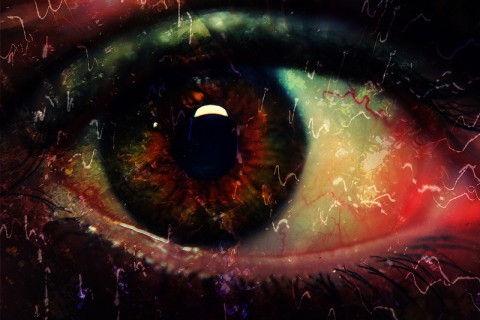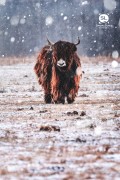When I was twenty-five I lived alone, in squalor, and was waging a year-long war against a fruit fly infestation, the original ancestors having ridden into my apartment on a single plum I’d bought and forgot about. Back then I could not stop drinking.
I made traps for them: bowls of fruit juice mixed with liquid Dawn, the dish soap coating their wings whenever they’d come in for a taste. They drowned by the hundreds. They bred by the hundreds, too, fueled by a constant source of leftover booze droplets in the cans and bottles sitting on every ledge and even the floor; I could not keep up with my own demand.
The infestation raged on even in the dead of winter, even when it was freezing out, even when I opened all the windows and turned off the heat and subjected myself to subzero air, hoping that’d kill them, that they’d all finally die and that me sitting in a coat and hat and scarf and gloves in my living room, drinking in the dark, would introduce me to a desire for life improvement efforts that would someday stick.
In the spring, the infestation was even worse; the tree outside my bedroom window blossomed and bore tiny berries the fruit flies loved. They came and went through the window screen—I can’t tell you how many I must have ingested in food or in drinks; they would nick the back of my throat going down, too, like swallowing sesame seeds.
Imprinted into my tactile memory is the feeling of them skittering across my skin, fast like tiny roadrunners with bulbous red eyes. I loathed the high pitched buzzing of their wings beating close to my ears.
They kept me company, though, like that of an acquaintance you can’t stand but spend all your time with anyway because neither of you has anyone better to hang out with. It was like we had an ongoing dialogue, their imposition, the seemingly never ending cycle of births and deaths, the larva I’d spot crawling in the spaces between floorboards.
___
As my disease progressed, more rapidly towards the end, the flies became white noise, an accepted feature of the apartment, like a creak in the door or a rickety ceiling fan. Fighting them off was futile, would have taken everything when I had nothing.
I can only recall a few blips from the very end: taking a cold bath with the lights out, not knowing if the ambiguously dark sky out the window was evening or dawn, or lying on my back on the bathroom floor, trying to remain conscious as the light fixture above me multiplied and swayed until my eyes rolled back.
I spent so much time on the bathroom floor that I came to recognize, in various stains on the eggshell walls, creatures, beings, like identifying shapes in clouds. There was a yellow pelican, a rose in what looked like dried blood, as well as a spot where hand soap had gone rogue from the pump and congealed to the wall, the shadow cast beneath it reminiscent of a human fetus.
___
For the longest time after I sought recovery, I kept relapsing.
And it was a process with the flies, cutting out their food supply, trapping those that remained, a slow but steady push towards mass extinction.
I discarded the trash in the apartment slowly, in increments of cleaning. I showed up to AA meetings and job interviews wearing shirts I’d pick busted larva shells off of on the drive there, rolling the clear flakes between my fingers and then dropping them onto the seat of my car.
My kitchen was riddled with hanging banners of fly paper. I swung rapidly between hope that I would recover and despair that this cycle would never end. For the longest time, I felt like a creature.
And when the flies were finally gone, I felt so alone in that apartment. Something sacred had happened there—I had come to know my barren self—and I had lost all my witnesses.



 The core workshop of SmokeLong Fitness is all in writing, so you can take part from anywhere at anytime. We are excited about creating a supportive, consistent and structured environment for flash writers to work on their craft in a community. We are thrilled and proud to say that our workshop participants have won, placed, or been listed in every major flash competition. Community works.
The core workshop of SmokeLong Fitness is all in writing, so you can take part from anywhere at anytime. We are excited about creating a supportive, consistent and structured environment for flash writers to work on their craft in a community. We are thrilled and proud to say that our workshop participants have won, placed, or been listed in every major flash competition. Community works.